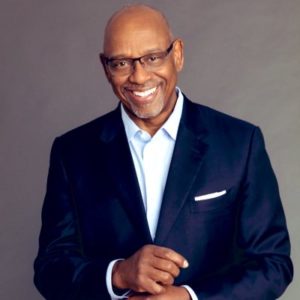
The week, Jeremy Morrison interviews Cedric Alexander, the retired law enforcement officer with a national reputation that is helping Mayor Grover Robinson develop a citizen panel to oversee the Pensacola Police Department.
The interview lasted over an hour and not all of it made the published article. We published the first part of the remainder of the interview and here is Part 2.
Pensacola Police Department
“I’ve been around a lot of police departments, talked to a lot of chiefs across the country all the time, particularly now with what’s going on — you have a good department here,” said Alexander. “But it’s not about just being good, it’s about continuing to grow and move towards perfection, which there’s never an endpoint there.”
 He continued, “You’ve got a department here I think overall is very good department. You have a department here where you have expectations from leadership that it will conduct itself in a certain manner. You have a department here that has a willing to learn and continue to evolve over time. And I think you have a department here where people are sensitive to the community in which they work around.”
He continued, “You’ve got a department here I think overall is very good department. You have a department here where you have expectations from leadership that it will conduct itself in a certain manner. You have a department here that has a willing to learn and continue to evolve over time. And I think you have a department here where people are sensitive to the community in which they work around.”
The department isn’t perfect, but Alexander doesn’t know of any institution that is.
“I think you have a very good department here and people ought to be proud of it.”
“The same issues that you find here you’ll find downtown at Manhattan, at The New York Times,” he shared. “Because at the end of the day people are people, but it’s the environment in which we work that allows us whether we’re going to harbor many of these ‘isms’ because if that environment allows that, that environment then is infected.”
He added, “So, when I hear people say, ‘Well, we’ve only got a couple of bad officers in our department,’ that’s problematic because it also suggests to me that if those bad apples are surviving inside that organization, then why hasn’t that organization moved them out.”
When an organization holds on to ‘bad apples,’ there’s something dysfunctional going on in that environment, according to Alexander.
“I think you have a very good department here and people ought to be proud of it,” he told Inweekly. “Is it perfect? No. But no organization is perfect. But what you have here is people who are willing to learn, people who are willing to ask ‘how do we move from good to better.’ And that’s what you want. They have a willingness to learn and to be taught and to receive training. That’s what you want here.”
Dismantling Police Force
“When we hear ‘dismantling’ right now, even in Minneapolis — now, Minneapolis is probably going to be an anomaly, because of what occurred there — what you’re going to see happen, I suspect they’re going to continue to have a police department, but you’re going to sees structural changes, you’re going to see policy changes, you’re going to see changes of how they do business, calls for service that they go to, how they respond to those calls for services, so you’re going to see some real structural changes,” said Alexander. “And you’re going to see far more community involvement in helping to develop those structural changes.”
He continued, “That’s going to be a ‘dismantling,’ but in many departments across this country, everybody now is being forced to look internally, inside their organizations, at their policies, the way we do business, our interactions, so forth and so on.”
Defunding Police
“When we start hearing the word ‘defunding,’ when I hear it as a chief, that means you’re taking all my money away from me,” said Alexander. “Well, if you do that then I can’t have a police department.”
He continued, “But that’s not what they’re saying. They’re using bad language. What they’re really doing is ‘redirecting’ money from my budget, putting it in social services such as mental health, homelessness, opioid treatments, educational programs.”
“Over the last many years so much money has been put into police budgets because police have been asked to do everything.”
“Because the theory is if I can take part of that budget, put it over here in social services where we can hire other people to tend to those issues, what does that do? If I have an increase in social services over here now, then what I should see over time is what? A decrease in calls for service, a decrease in interactions, unnecessary interactions with police, and, over time, see a drop in crime.”
Alexander added, “You follow me? That’s in theory, it’s what we want to look and see happening. Because over the last many years so much money has been put into police budgets because police have been asked to do everything.”
He believes the discuss is a healthy exercise, because it moves the conversation “from this me-trying-to-be-everything-to-everybody and getting back to what policing was designed for, crime prevention.” It changes to being in the prevention business, and not always in the reaction business.
“Because we’re sending officers out — school resources, mental health calls, opioid calls — we’re sending them out for everything, and we’re asking them to do all of this,” said Alexander. “But if we have people who are trained — as long as this population is not dangerous — but if they’re responding to some of these other complaints that police doesn’t have to respond to, one, they’re getting appropriate care that they need, because I’m not just in and out, but they’re really with professionals who can get them where they need to be and can get them the clinical support, whatever it is that they need there, or if they’re in these schools, they’re more equipped and trained to deal with that population than officers are out here on the streets.”
He added, “So, theoretically what you’re doing now is increasing social services through funding to address these other social issues. It alleviates calls for service police to do more what? Preventative work.”
Change and reform are coming.
“And it’s gonna come across this nation, in sweeping form,” he said. “Every department, everywhere, no matter how small you are, it’s coming. And so you have an opportunity now to either get ahead of this, by implementing training inside your organization, by looking at policies, by bringing people in from your communities — community committee, helping us to take a look at ourselves, because you represent the entire city.”
He added, “And how do we be better? How do we incorporate and make ourselves more transparent in that arena? And that can be, certainly, one of the hopes of this committee (mayor’s police oversight panel), to be able to provide those recommendations.”
Ahead of the Curve
Alexander believes the recent implicit/explicit bias training has given a head start on reform.
“The Pensacola Police Department is ahead of that curve,” said Alexander.”Leadership training is so crucial. With good leadership, guys like Chauvin (Minneapolis police that killed George Floyd) cannot exist inside your environment, because what you learn through your leadership training is that we all have to be accountable.”
He continued, “And that means that if I’ve got guys that work on my squad and I’m not paying attention to their behaviors, how they come to work, their attitude, their language, then I’m not doing my job as a boss. Because people are going to telegraph to you who they are and their behaviors. But if you’re not paying attention to people who work with you and around you, then they’re going to get themselves hurt and they put other people at risk of getting hurt.”
He shared this story:
“I remember years ago, being a detective in Miami, there was a squad of us, a pretty tight crew, and one of our guys I will never forget, good ol’ Irish kid, he was, started coming to work looking disheveled and wasn’t shaving, clothes raggedy, hanging off of him. And we knew something was going on in his life, but we didn’t say nothing 35 years ago because we don’t know what we know now–we were all kids, we were all in our 20s, early 30s. And we weren’t going to say anything to the boss, because the boss may try to ship him off to a shrink or get him fired or whatever. Well, he ate his gun one night. And he telegraphed to us. But we didn’t know what we know now. You see what I’m saying?”
Training is important, as is being a good supervisor.
“Pay attention to your men and women, because they work in a very stressful job,” he said. “When we have an opportunity to pay attention to behavior and attitude, as good bosses we’re able to intervene. We learn that in our training, we’re able to intervene and sometimes just ask people, ‘how’s it going?’ Just one-on-one, ‘hey, let’s, you know, find a building down the street and just kick it for a minute.’ And when people ask you that, sometimes you’ll be surprised, because they want to get it out.”
He continued, “And that’s part of being a good boss, part of supervision, part of the roles that we have to play today. And policing, yes, is a tough business, but all in all, we also have to make sure that we’re building trust, we’re building legitimacy, we’re taking care of our officers, we’re keeping them well, and we’re providing them with training.”



